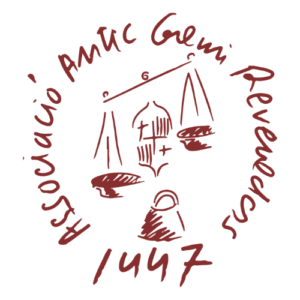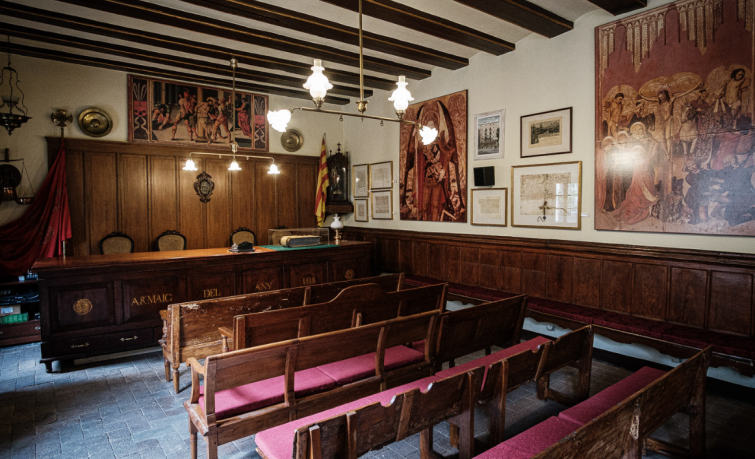
© Jordi Borràs
WHO ARE WE?
WHO ARE WE?
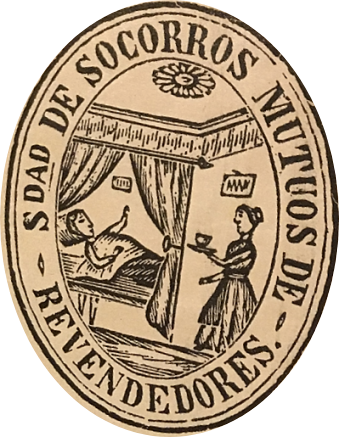
In Catalonia, until the mid-14th century, royal power considered that associations of laypeople were always illicit: summoning the people, forming confederations, and creating a common fund were seen as high treason, punishable by death. Therefore, obtaining authorization to form a ‘confraternity’ was equivalent to securing the rights of assembly and association at the time, which were essential for organizing and defending the interests of the trade. It also benefited the king because he could collect taxes from them.
The so-called guild of tenders and retailers of Barcelona (18th century), under the patronage of Archangel Saint Michael, was born as a brotherhood in 1447 and evolved into the current non-profit association. Throughout all this time, there have been two clear objectives. From the beginning until the extinction as a guild, like all guilds, the work of market regulation was essential, but so was the charitable aspect. Assisting members in times of need. This work, adapted to each period, has been extensively detailed in
numerous statutes and regulations developed over the years.
With the “Law of Associations” of February 29, 1839, the regulatory aspect came to an end, and the few remaining guilds disappeared. The guild of tenders and retailers of Barcelona transformed into an “association,” where they transferred their assets. From that moment on, the members could pursue other professions; they no longer had to be retailers, and they were no longer required to pay dues. Also from this point on, entry into the organization would only be through primogeniture, a rule that remains in force. Since then, the organization, despite the various legal forms it has had to adopt to survive under different administrations, has fulfilled its role with its members, who are direct descendants of the former confreres and later guild members.
SOCIAL MISSION
1
Promote historical research on the city of Barcelona.
2
Preserve, study, and disseminate the historical documentary heritage of the Antique Guild of Tenders and Resellers of Barcelona, which, under the patronage of Archangel Saint Michael, was founded in 1447. This legacy dates back to medieval times and is one of the richest and oldest in Catalonia.
3
The Association sponsors and promotes archive inventories, the transcription of collections, document analysis, and historical research.
4
Provide support and funding for research projects in this field.
5
Preserve the guild’s historical, cultural, and social welfare spirit, maintaining the historical rights of the original guild members, later mutualists, and now associates, to receive social benefits related to specific contingencies: hospitalization, illness, dependency, childbirth or adoption, burial, orphanhood, and, if applicable, old age.
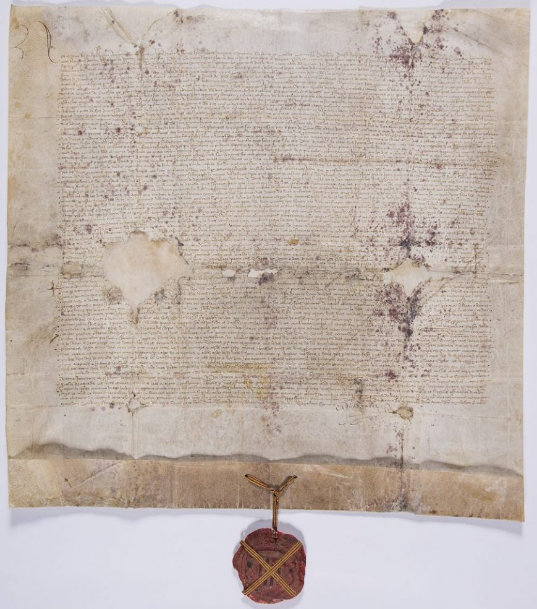
OUR BOARDROOM
Guild houses typically have specific features, such as a boardroom called the ‘Sala.’ We offer you the opportunity to visit our boardroom virtually through this 360° image or in person.
BOARD OF DIRECTORS
Francesc Sendil i Martí
PRESIDENT
Pere Marès i Martí
VICEPRESIDENT
Andreu Rovira i Gabiñau
SECRETARY
Maria Maylinch Guillamon
VOCAL
Dolors Serra i de Figarolas
VOCAL
Josep Costa i Amengual
VOCAL
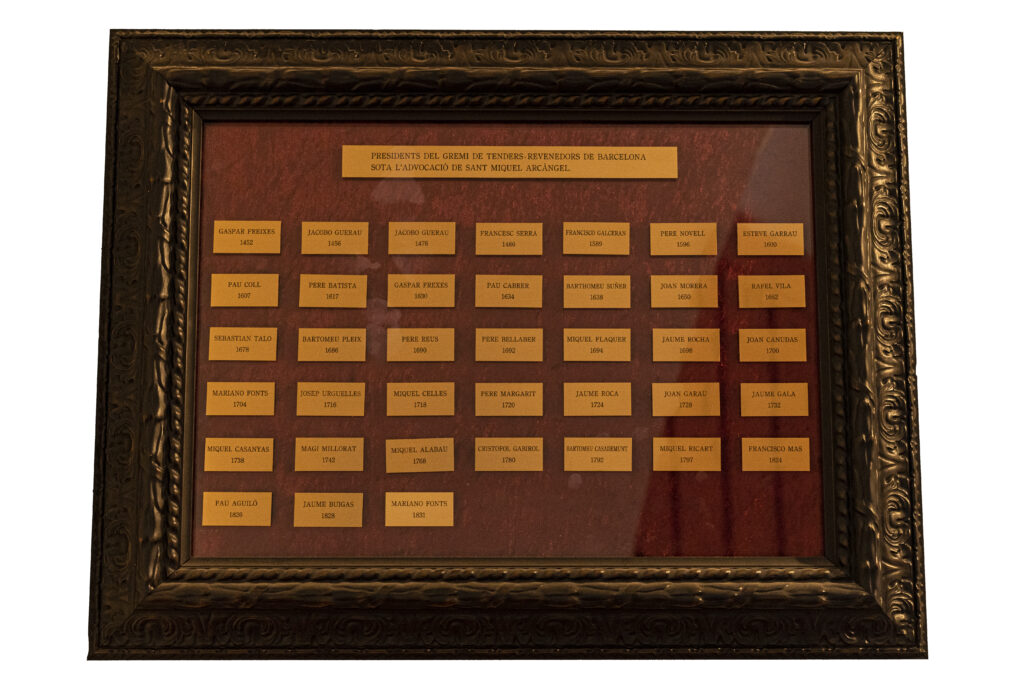
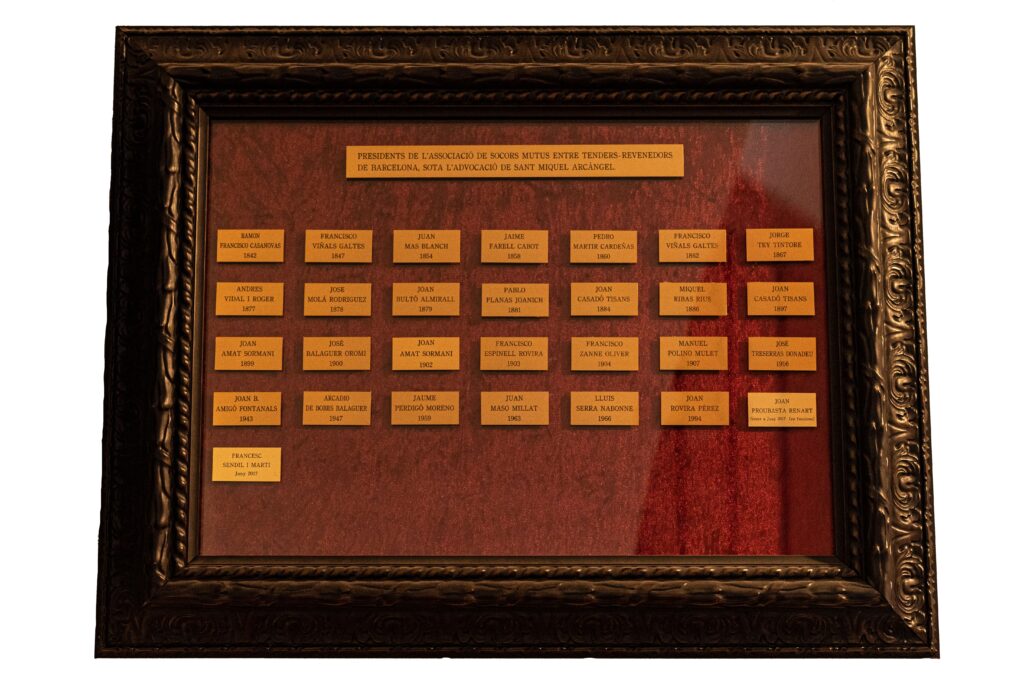
Fotografies: Pau de la Calle
STATISTICAL BOARD
It is the body that manages the admissions and departures of the associates. It is also responsible for the care of family records. He is also in charge of taking care of the family files.
Francesc Sendil i Martí
PRESIDENT NAT
Ascensió Sagarra Carbó
SECRETARY
Gemma Marín Lafarga
VOCAL
Mª Carme Metje Mayor
VOCAL
Pilar Cassolà Esterhuelas
VOCAL
Pere Marès i Martí
VOCAL BY DELEGATION OF THE BOARD OF DIRECTORS
ADVISORY BOARD
It is the advisory and consultative body composed of all members who have held a management position in the organization.

